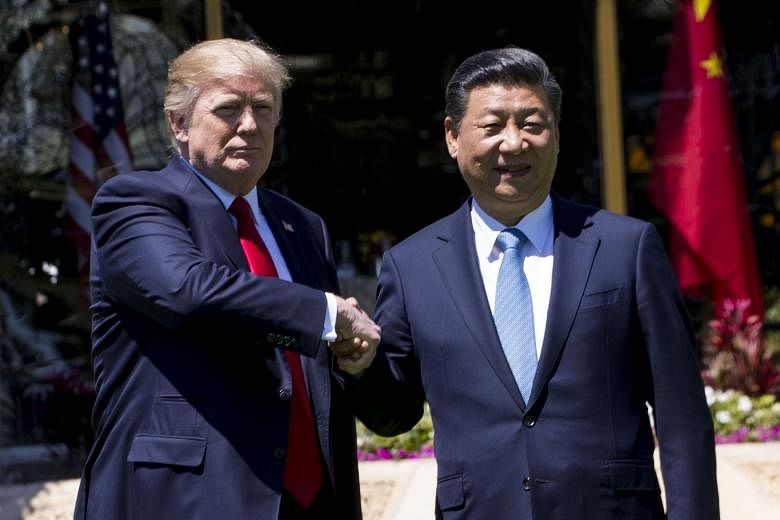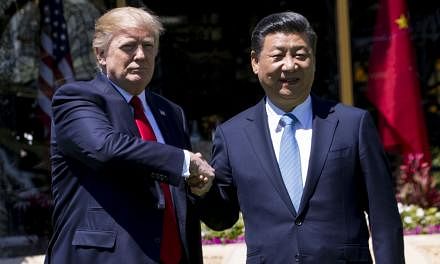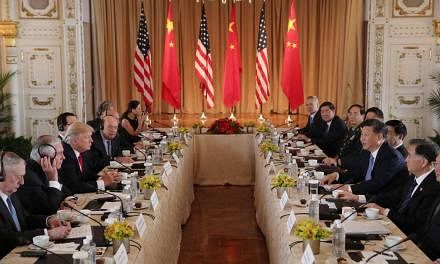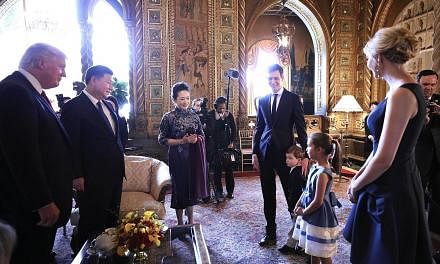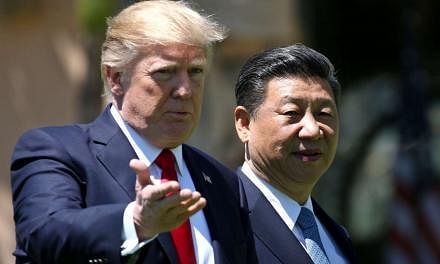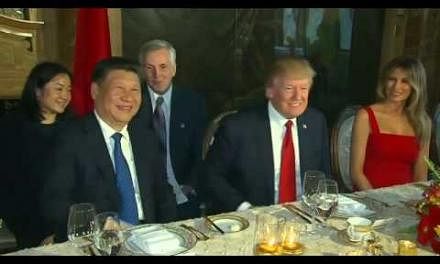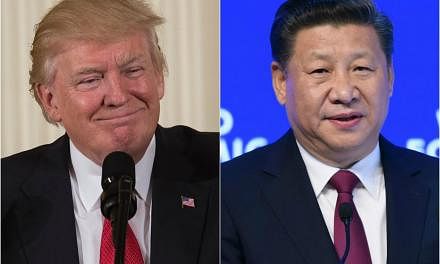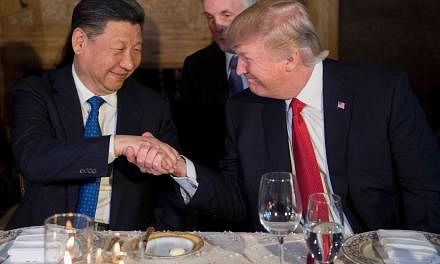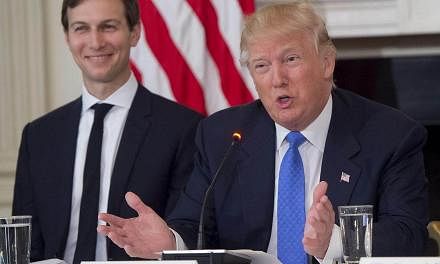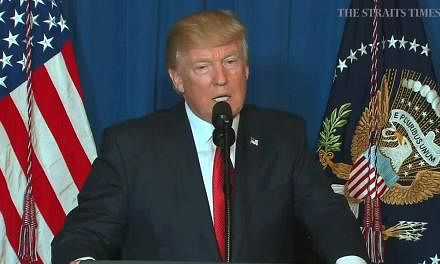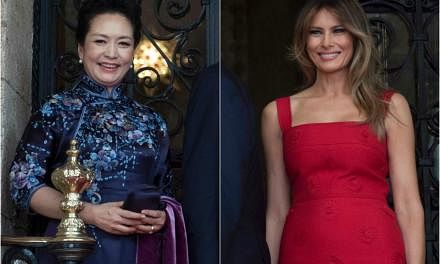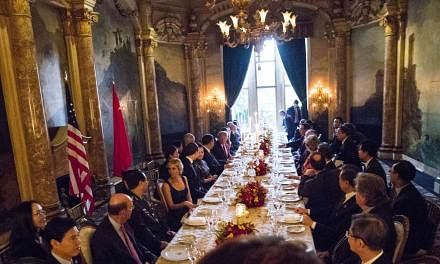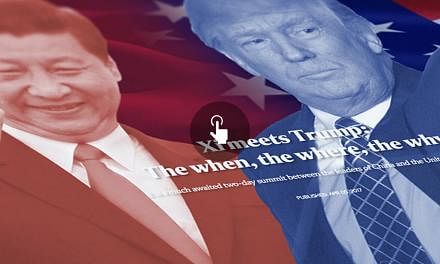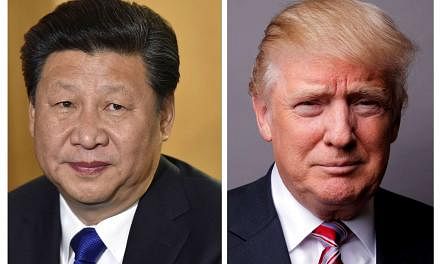As an exercise in damage limitation, the summit between US President Donald Trump and his Chinese counterpart Xi Jinping worked better than officials in both countries had expected.
Mr Trump was at his convivial best, and did not put on the grumpy look he adopted when he recently hosted Germany's Chancellor Angela Merkel. US protocol officers also did not goof up.
And amid the showy opulence of Mr Trump's Florida residence, Mr Xi and his wife struck a restrained image. In short, official media handlers in both Beijing and Washington have every reason to breathe a sigh of relief.
Yet in concrete foreign policy terms, the first China summit of the Trump presidency achieved little more than just sketching out the challenges which lie ahead; the two presidents have shown that they can talk, but have yet to prove that they can work together.
In the lead-up to the summit, China-watchers predicted that President Xi would bring with him a number of key proposals on how to reduce China's huge trade surplus with the US, the thorniest of all bilateral issues and a key plank in Mr Trump's electoral campaign, during which he repeatedly accused China of "raping" the United States, and vowed to brand the superpower a currency manipulator.
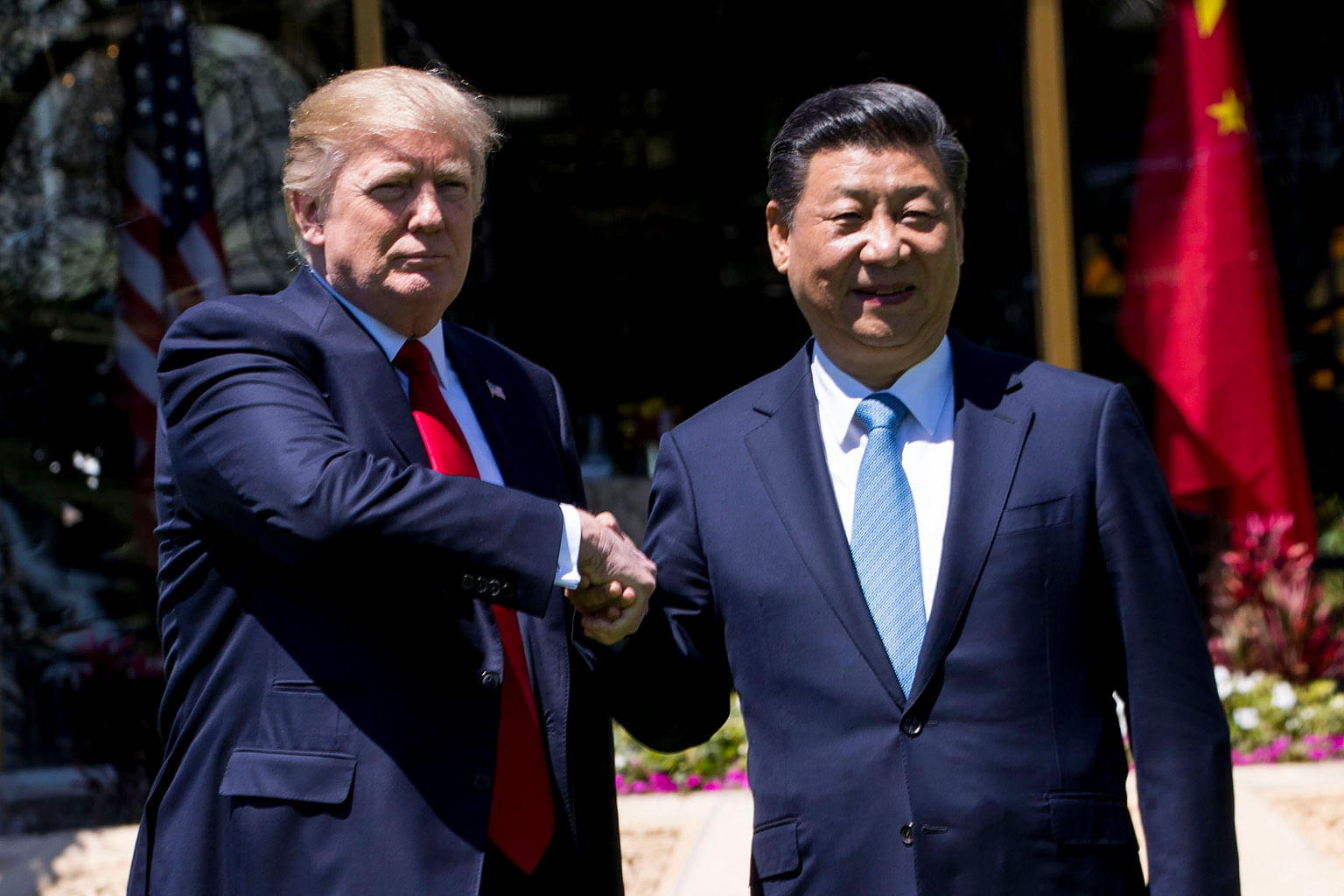
But that was never very likely, if only because Beijing regarded this first summit as a mere getting-to-know-you effort, the first stage in a broader haggling with Washington over trade terms. So the agreement that the two powers will spend the next 100 days outlining their trade grievances and identifying possible solutions was the best that was ever hoped for; it took the sting out of Mr Trump's immediate anger with China, while also acknowledging that the trade imbalance remains a serious problem.

US Commerce Secretary Wilbur Ross boasted that, while previous trade talks with China were "denominated in multiple years", the fact that presidents Xi and Trump have agreed to a 100-day plan to improve trade ties and boost cooperation remained the "most significant takeaway" from the latest summit.
Perhaps, although as Mr Ross himself subsequently admitted, "given the range of issues" facing the world's most important economies, the timetable "may be ambitious". For, as both he and the Chinese know only too well, nothing is going to be decided until Mr Trump arrives for a state visit to China later this year. Still, if the danger of unilateral US trade sanctions has been averted, that in itself is an achievement.
But other important issues were also kicked into the future. The two presidents apparently engaged in "candid discussions" on the South China Sea which, stripped of diplomatic niceties, merely means that both reiterated their old positions. China and the US also talked about establishing a "new high-level framework" for cooperation on security questions which looks remarkably similar to what Mr Xi launched with then President Barack Obama two years ago.
Nor did the Chinese yield anything important on North Korea, apart from reiterating old slogans about the need for both sides to "exercise restraint" and "engage in dialogue".
And on Syria, a conflict in which China has no significant stake, Beijing was not prepared to give much away. "The Syrian President is elected by the people of Syria and we respect their choice," intoned a Chinese Foreign Ministry spokesman in response to the US military strike on the country, an argument which not even Moscow, which is propping up the Damascus regime with Russian troops, has ever used in defence of the Syrian president.
Still, as the Chinese and American leaders wrapped up their summit, there was a potentially significant hint from the US that the current administration may be about to shift its policy on North Korea.
As Secretary of State Rex Tillerson pointedly remarked, the Americans would be "happy to work" with China on stopping North Korea's nuclear quest, but "we understand it creates unique problems" for Beijing, and "are prepared to chart our own course if this is something China is just unable to coordinate with us". In other words, either the Chinese help deal with North Korea, or the Americans would do it themselves, in ways which the US won't specify.
China will be well advised not to dismiss this as just bluster. For it may be the start of a new approach from the Trump administration, one in which the response to North Korea's defiance is an increasing US military footprint in North Asia, precisely what Beijing fears most.
So, although Mr Trump claimed that he made "tremendous progress" in the US-China relationship during his talks with Mr Xi, the reality remains that both sides have merely staked their respective claims. The hard work of conciliation still lies ahead, and it could prove very elusive.
The atmosphere at the summit between Chinese President Xi Jinping and his United States counterpart, Mr Donald Trump, was much better than expected, which not only brought cordiality into two days of discussions but also portends well for the world's most important bilateral relationship, Chinese analysts and media said.
However, the meeting offered few specific agreements and fell short of expectations, for instance, that the Chinese might announce investments in American infrastructural projects, said Professor Shi Yinhong, director of the Centre for American Studies at Renmin University.
The two leaders met at Mr Trump's Mar-a-Largo resort in Florida last Thursday and Friday, although Mr Xi did not stay at the resort but at another one in the same Palm Beach area.
Mr Trump had talked tough ahead of the summit, saying in a tweet that it would be "a very difficult one in that we can no longer have massive trade deficits and job losses". He had earlier said China's unfair trade practices cost many Americans their jobs and threatened punitive measures.
On another issue where the two sides have huge differences, North Korea's nuclear programme, Mr Trump had also ahead of the meeting taken a hard line, saying the US would go it alone on North Korea if the Chinese refused to cooperate.
But this bellicosity did not appear to have affected the summit, in part because both sides wanted the meeting to succeed.The two leaders "have quite good chemistry", noted Professor Jia Qingguo, dean of the School of International Studies at Peking University.
The two men were more focused on the overall situation and hoped to push the relationship towards a positive direction. They "did not wish for the contradictions in the two countries' relationship to affect the development of their ties and their cooperation", he added.
On trade, the two sides have agreed on a 100-day plan for trade talks aimed at boosting US exports and reducing China's trade surplus with the US, the media have reported. This amounted to "vague concessions" on the part of the Chinese, noted Prof Shi.
However, contrary to expectations, China appeared not to have offered investments in the US on infrastructure building, something close to Mr Trump's heart.
On North Korea, the Chinese did not budge from their original position. According to a statement on the summit from Chinese Foreign Minister Wang Yi, China merely reiterated its stand that it would continue to implement fully the United Nations Security Council's resolutions on North Korea and was committed to solving the nuclear issue through dialogue and consultation. It also reiterated its opposition to the deployment of an advanced missile defence system in South Korea.
On Taiwan, China reiterated its hope that the US abide by the three communiques between the two sides and the US' one China policy. But Mr Trump did not repeat his earlier promise that he would adhere to this policy, something China would have liked him to do.
China had been nervous about Mr Trump's Taiwan policy after he broke with tradition to speak directly with Taiwan President Tsai Ing-wen and questioned the US' one China policy, although he later rowed back on this.
Both sides also gave no quarter to each other on the South China Sea, with the US raising concerns and the Chinese restating their principles on this. Still, the two sides agreed on new mechanisms to manage ties, including on diplomacy and security, economy, law enforcement and cyber security.
That the summit lacked high drama could be attributed to a new American pragmatism that bodes well for US-China ties, the Chinese media said.
Unlike past US administrations which were straitjacketed by ideology, Mr Trump appears refreshingly unencumbered by such burdens, and this made it easier to cooperate, said China Daily, pointing out that Mr Trump had said during his election campaign that the US could learn from China's successful economic and social policies.
The Global Times said the pragmatic approach of both countries "has now signified a new level of progress among powerful nations intent on maintaining relationships". Respect, better communication and minimising harm on issues where they diverge have helped boost a traditionally complicated relationship, said the Communist Party-linked paper.
Chinese analysts agreed that the summit was a good beginning for the relationship of the world's two most powerful nations.
"Overall, the visit was very successful," said Prof Jia.
As Professor Huang Jing of the Lee Kuan Yew School of Public Policy said: "We can now worry less that China and the US are on a confrontational course."
•Additional reporting by Lim Yan Liang
